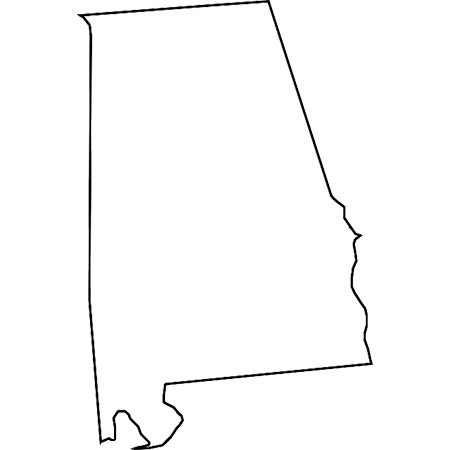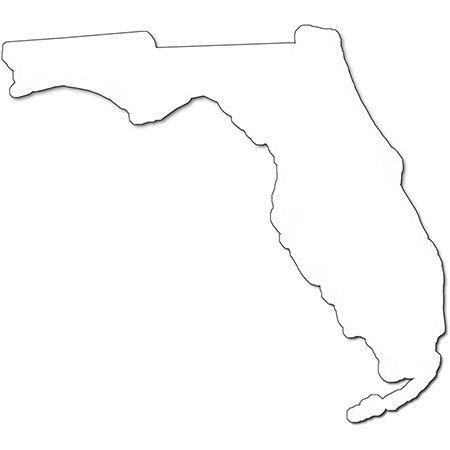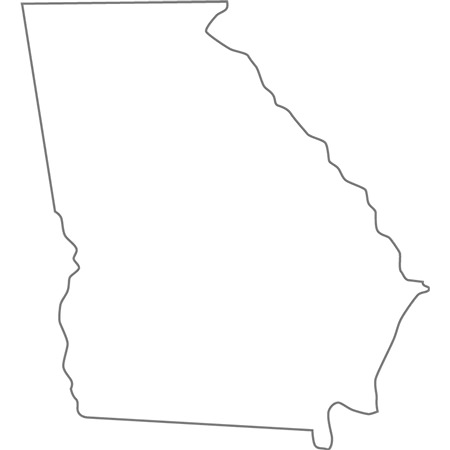Ukrainian Catholic Eparchy of Saint Josaphat in Parma: Safe Environment Training and Background Clearance Requirements
INTRODUCTION
The safety of children and vulnerable adults is of paramount importance to the clergy, employees, and volunteers of the Ukrainian Catholic Eparchy of St. Josaphat in Parma. To that end, the Safe Environment Training & Background Clearance Requirements (hereinafter “Requirements”), which accompany this Introduction, have been developed.
In reviewing and utilizing the Requirements, it is important to place them in context. While developing these Requirements it became obvious that the regulations and statutes of the various States do not directly address the context in which most contact with children and vulnerable adults occurs within the Eparchy. The regulations and statutes address residential childcare, day care, and schools. In an abundance of caution, the Eparchy has chosen to develop the Requirements using the most rigorous of the various State regulations and statutes applicable to interactions with children and vulnerable adults.
The links or citations that are provided in the Requirements will lead to the most applicable regulations or statutes. Those links or citations may lead to other related links or statutes. These Requirements will be reviewed periodically and updated as required by changes to regulations and statutes.
Appendix 1
Resources and Statutory Citations
Alabama
Roman Catholic Diocese
Roman Catholic Archdiocese of Mobile
400 Government St,
Mobile, AL 36602
Office for the Protection of Minors
https://mobarch.org/childprotection
Statutory Citations
Alabama Code > Title 38 > Chapter 13 – Criminal Background Checks On Persons Responsible for Children, Elderly, and Disabled https://www.lawserver.com/law/state/alabama/al-code/alabama_code_title_38_chapter_13
https://dhr.alabama.gov/child-protective-services/central-registry-clearance/
https://www.aps.gemalto.com/al/dhr/aldhr_landing.htm
Florida
Roman Catholic Dioceses
Roman Catholic Archdiocese of Miami
9401 Biscayne Blvd
Miami Shores, FL 33138
Protecting God’s Children (General Policy)
https://www.miamiarch.org/CatholicDiocese.php?op=PGC_Genral_Policy
(specific policies and procedures for fingerprinting and clearances are accessible through this general policy page)
Roman Catholic Diocese of St. Augustine (Jacksonville, FL)
11625 Old St Augustine Rd
Jacksonville, FL 32258
Safe Environment Office
https://safe.dosafl.com/
(specific policies, procedures, and training requirements are all accessible from this page)
Statutory Citations
Title XXIX F. S. Ch393.0655 (Public Health, Developmental Disabilities)
Title XXIX F.S. Ch 435.03 (Public Health, Level 1 Screening of Certain Employees)
Many other citations to screening of providers in different settings all are consistent in requiring screening through Florida Department of Law Enforcement
Title XXIX F.S. 402.302 et seq (Public Health; Health and Human Services) (This site is comprehensive and provides definitions, explanations and exceptions.) http://www.leg.state.fl.us/Statutes/index.cfm?App_mode=Display_Statute&URL=0400-0499/0402/Sections/0402.302.html
https://www.fdle.state.fl.us/Criminal-History-Records/Obtaining-Criminal-History-Information.aspx
Georgia
Roman Catholic Diocese
Roman Catholic Archdiocese of Atlanta
2401 Lake Park Dr SE
Smyrna, GA 30080
Safe Environment/Office of Child and Youth Protection
https://archatl.com/ministries-services/safe-environment/
(policies and procedures; philosophy)
Statutory Citations
Georgia Department of Early Care and Learning (DECAL) https://www.decal.ga.gov/CCS/CriminalRecordsCheck.aspx
(comprehensive site provides detailed instructions for multiple different scenarios and provides links to other relevant sites)
Kentucky
Roman Catholic Diocese
Roman Catholic Archdiocese of Louisville
3940 Poplar Level Rd
Louisville, KY 40213
Safe Environment Program
https://www.archlou.org/about-the-archdiocese/archdiocesan-policies-guidelines-and- handbooks/
Statutory Citations
Kentucky Applicant Registry and Employment System
906 Cabinet for Health and Family Services CH 1:190
https://chfs.ky.gov/agencies/os/oig/Pages/kares.aspx
(provides information about processes for background checks and locations for fingerprinting)
Mississippi
Roman Catholic Diocese
Roman Catholic Diocese of Jackson
237 E Amite St
Jackson, MS 39201
Office for the Protection of Children and Young People
https://jacksondiocese.org/offices/child-protection/
Statutory Citations
Mississippi Department of Public Safety
https://www.dps.ms.gov/investigation/criminal-information-center
Mississippi Department of Health
https://msdh.ms.gov/msdhsite/_static/30,0,206.html
https://msdh.ms.gov/msdhsite/_static/30,0,206,62.html
(forms for fingerprinting and background checks)
North Carolina
Roman Catholic Dioceses
Roman Catholic Diocese of Charlotte
1123 South Church Street
Charlotte, North Carolina 28203
Safe Environment
https://charlottediocese.org/human-resources/safe-environment/
Roman Catholic Diocese of Raleigh
7200 Stonehenge Drive
Raleigh, North Carolina 27613
Protecting God’s Children
https://dioceseofraleigh.org/child-and-youth-protection/child-and-youth-protection
Statutory Citations
North Carolina DHHS: Division of Child Development and Early Education
https://ncchildcare.ncdhhs.gov/Services/Child-Care-Rules-Law-and-Public- Information
NCDHHS Criminal Background Check
https://ncchildcarecbc.nc.gov/
Ohio
Roman Catholic Dioceses
Roman Catholic Diocese of Youngstown
144 West Wood Street
Youngstown, OH 44503
https://doy.org/
(This website is presently under renovation information is not easily accessible using Facebook or other social media)
Roman Catholic Diocese of Cleveland
1404 E 9th St,
Cleveland, OH 44114
Parish Life/Child Protection
https://www.dioceseofcleveland.org/offices/parish-life/child-protection
Roman Catholic Archdiocese of Cincinnati
100 East Eighth Street
Cincinnati, OH 45202
Safe Environment
https://catholicaoc.org/offices/safe-environment
Statutory Citations
Ohio.gov/background checks
https://ohio.gov/business/resources/background-checks
Background Check Process
https://jfs.ohio.gov/cdc/Background_Check_Process.stm
Instructions for processing background checks for child care
https://jfs.ohio.gov/cdc/docs/BackgroundCheckInstructions2017.stm
Pennsylvania
Roman Catholic Dioceses
Roman Catholic Diocese of Pittsburgh
2900 Noblestown Road
Pittsburgh, PA 15205
Protection of Children, Youth, and Vulnerable Adults
https://diopitt.org/protect
Roman Catholic Diocese of Greensburg
723 E Pittsburgh St
Greensburg, PA 15601
Youth Protection
https://www.dioceseofgreensburg.org/youth-protection/Pages/Protecting-Gods- Children.aspx
Diocesan Clearances and Training
https://www.dioceseofgreensburg.org/youth-protection/Pages/childservices.aspx
Roman Catholic Diocese of Erie
429 E Grandview Blvd
Erie, PA 16504
Protection of Children and Youth
https://www.eriercd.org/childprotection/SafeEnvironmentForms-.html
Statutory Citations
Department of Human Services, Keep Kids Safe
https://www.dhs.pa.gov/KeepKidsSafe/Clearances/Pages/default.aspx
Child Abuse History Clearance
https://www.dhs.pa.gov/KeepKidsSafe/Clearances/Pages/PA-Child-Abuse-History- Clearance.aspx
Pennsylvania State Police Criminal History Clearance
https://www.dhs.pa.gov/KeepKidsSafe/Clearances/Pages/Criminal-Background- Check.aspx
FBI Clearance
https://www.dhs.pa.gov/KeepKidsSafe/Clearances/Pages/FBI-Fingerprinting.aspx
South Carolina
Roman Catholic Dioceses
Roman Catholic Diocese of Charleston
901 Orange Grove Road
Charleston, SC 29407
Office of Child and Youth Protection
https://charlestondiocese.org/child-and-youth-protection/
Statutory Citations
South Carolina Code of Laws Childcare Facilities (background checks)
https://www.scstatehouse.gov/code/t63c013.php
Background check process
https://catch.sled.sc.gov/
Fingerprinting
www.identoGO.com
Tennessee
Roman Catholic Dioceses
Roman Catholic Diocese of Nashville
2800 McGavock Pike
Entrance #4
Nashville, TN 37214
Child and Youth Protection
https://dioceseofnashville.com/safe-environment/
Roman Catholic Diocese of Memphis
5825 Shelby Oaks Dr
Memphis, TN 38134
Diocese of Memphis Victims Assistance
https://cdom.org/wp-content/uploads/2019/04/BackgroundInvestigationProgram.pdf
(within this section of the website are multiple subsections addressing policies, background procedures, and reporting abuse)
Statutory Citations
Background Checks for childcare (includes background check and fingerprinting)
https://www.tn.gov/humanservices/for-families/child-care-services/background-checks- for-child-care- employees.html#:~:text=All%20individuals%20working%20in%20licensed,Bureau%20 of%20Investigation%20(TBI).&text=Each%20applicant%20must%20retain%20proof,a ttached%20to%20the%20Disclosure%20Form.
West Virginia
Roman Catholic Diocese
Roman Catholic Diocese of Wheeling-Charlestown
1311 Byron St.
Wheeling, WV 26003
Office of Safe Environment
https://dwc.org/diocese/offices/office-of-safe-environment/why-safe-environment/
Statutory Citations
Background checks for childcare workers
https://dhhr.wv.gov/bcf/Providers/Pages/CIB.aspx
West Virginia Background Check Guide
https://dhhr.wv.gov/bcf/Providers/Documents/Background%20check%20Guide.pdf
Fingerprinting
www.identoGO.com
Appendix 2
Required Reporter Definitions and Statutory References
General Reference providing additional guidance for all States: (worthwhile to read as it provides some insight into clergy as mandated reporters)
http://centerforchildwelfare.org/kb/cultcomp/clergy%20mandated%20reporters.pdf
Alabama
Who are mandatory reporters? According to Alabama Law, any person who knows or has reasonable cause to believe or suspect that a child has been abused or neglected or who observes any child being subjected to conditions or circumstances that would reasonably result in abuse shall be required to report orally, either by telephone or direct communication immediately, followed by a written report, to DHR, law enforcement, or the District Attorney. Mandatory reporters are: · Employees of hospitals/clinics/sanitariums · Doctors/physicians/surgeons · Medical examiners/coroners · Dentists · Osteopaths · Optometrists, chiropractors, podiatrists, physical therapists, nurses · Public and private K-12 employees · School teachers and officials · Peace officers/law enforcement officials, pharmacists · Social Workers and mental health professionals · Child care workers or employees · Employees of public and private institutions of postsecondary and higher education
Clergy: A member of the clergy shall not be required to report information gained solely in a confidential communication privileged pursuant to Rule 505 of the Alabama Rules of Evidence which communication shall continue to be privileged as provided by law. Alabama Ala. Code § 26-14-3(a), (f) (LexisNexis through 2007 Reg. Sess.)
Members of the clergy as defined in Rule 505 of the Alabama Rules of Evidence… when the child is known or suspected to be a victim of child abuse or neglect, shall be required to report, or cause a report to be made of the same, orally, either by telephone or direct communication immediately, followed by a written report, to a duly constituted authority. A member of the clergy shall not be required to report information gained solely in a confidential communication privileged pursuant to Rule 505 of the Alabama Rules of Evidence, as such communications shall continue to be privileged as provided by law.
Alabama Code 26-14-3— Mandatory Reporting in Alabama
Link to brochure providing definitions and ways to report: https://ctf.alabama.gov/wp-content/uploads/2017/10/Mandatory-Reporting-Brochure-ver-5.pdf
Florida
Florida law requires that ANY person in Florida who knows or has reasonable cause to suspect that a child is being abused, neglected, or abandoned by a parent, legal custodian, caregiver or other person responsible for the child’s welfare MUST immediately report that knowledge or suspicion to the Florida Abuse Hotline of the Department of Children and Families. The penalty for failing to report is a felony of the third degree. There are also financial penalties for failing to report known or suspected child abuse or neglect.
If you know or suspect that a child under the age of 18 is being abused or neglected, or is at risk of being abused or neglected, you are required to report that to the Florida Abuse Hotline.
Remember, it is not your job to know whether abuse has occurred or not, IT IS YOUR JOB report your concern.
Whether or not clergy are mandated reporters in Florida is not crystal clear. The statute refers to “any person”. While clergy are not identified as such in the enumeration of professionals who are required to report, it does refer to practitioners providing spiritual counseling, arguably this could include clergy. Florida Annotated Statutes section 39.204 makes reference to exceptions from required reporting and makes reference to the privilege afforded to clergy by Florida Annotated Statutes section 90.505
Florida Fla. Stat. Ann. § 39.204 (LexisNexis through 2007 Reg. Sess.) The privileged quality of communications between husband and wife and between any professional person and his or her patient or client, or any other privileged communications except that between attorney and client or the privilege provided by § 90.505 [providing for the confidentiality of communications made to a clergy member for the purpose of spiritual counsel], as such communication relates both to the competency of the witness and to the exclusion of confidential communications, shall not apply to any communication involving the perpetrator or alleged perpetrator in any situation involving known or suspected child abuse, abandonment or neglect, and shall not constitute grounds for failure to report as required by the reporting laws regardless of the source of information requiring the report, failure to cooperate with law enforcement or the department in its activities pursuant to this chapter, or failure to give evidence in any judicial proceeding relating to child abuse, abandonment, or neglect. Fla. Stat. Ann. § 39.201(1) (LexisNexis through 2007 Reg. Sess.) Any person who knows, or has reasonable cause to suspect, that a child is abused, abandoned, or neglected by a parent, legal custodian, caregiver, or other person responsible for the child’s welfare, or that a child is in need of supervision and care and has no parent, legal custodian, or responsible adult relative immediately known and available to provide supervision and care, shall report such knowledge or suspicion to the department.
Link to brochure providing definitions and other guidance: https://www.myflfamilies.com/service-programs/abuse-hotline/publications/mandatedreporters.pdf
Georgia
The following link is to the Department of Child Protective Services in the State of Georgia. This link includes a lengthy listing of professional who are identified as mandatory reporters. Clergy are included on the list. Further research reveals that communication received in confession is not required to be reported but information gained in other circumstances must be reported. (Georgia Division of Family and Children Services, Child Welfare Policy Manual, Practice Guidance Section #17)
https://cps.dhs.ga.gov/Main/Default.aspx
A member of the clergy shall not be required to report child abuse reported solely within the context of confession or other similar communication required to be kept confidential under church doctrine or practice. When a clergy member receives information about child abuse from any other source, the clergy member shall comply with the reporting requirements of this code section, even though the clergy member may have also received a report of child abuse from the confession of the perpetrator. https://law.justia.com/codes/georgia/2019/title-19/chapter-7/article-1/section-19-7-5%20of%20children.
Kentucky
Ky. Rev. Stat. Ann. § 620.030(1) (LexisNexis through 2007 Reg. Sess.) Any person who knows or has reasonable cause to believe that a child is dependent, neglected, or abused shall immediately cause an oral or written report to be made. This material may be freely reproduced and distributed. However, when doing so, please credit Child Welfare Information Gateway. Available online at www.childwelfare.gov/systemwide/laws_policies/statutes/clergymandated.cfm. 9 Clergy as Mandatory Reporters of Child Abuse and Neglect: Summary of State Laws www.childwelfare.gov Ky. Rev. Stat. Ann. § 620.050(3) (LexisNexis through 2007 Reg. Sess.) Neither the husband-wife nor any professional-client/patient privilege, except the attorney-client and clergy-penitent privilege, shall be ground for refusing to report, or for excluding evidence regarding a dependent, neglected or abused child thereof, in any judicial proceedings resulting from a report. This subsection shall also apply in any criminal proceeding in District or Circuit Co
Mississippi
Mississippi Miss. Code Ann. § 43-21-353(1) (LexisNexis through 2007 Sess.) Any…minister…having reasonable cause to suspect that a child is a neglected child or an abused child shall cause an oral report to be made immediately by telephone or otherwise and followed as soon thereafter as possible by a report in writing to the Department of Human Services…urt regarding a dependent, neglected, or abused child.
North Carolina
North Carolina N.C. Gen. Stat. § 7B-310 (LexisNexis through 2006 Reg. Sess.) No privilege shall be grounds for any person or institution failing to report that a juvenile may have been abused, neglected, or dependent, even if the knowledge or suspicion is acquired in an official professional capacity, except when the knowledge is gained by an attorney from that attorney’s client during representation only in the abuse, neglect, or dependency case. No privilege, except the attorney-client privilege, shall be grounds for excluding evidence of abuse, neglect, or dependency in any judicial proceeding (civil, criminal, or juvenile) in which a juvenile’s abuse, neglect, or dependency is in issue nor in any judicial proceeding resulting from a report submitted under this Article, both as the privilege relates to the competency of the witness and to the exclusion of confidential communications. N.C. Gen. Stat. § 7B-301 (LexisNexis through 2006 Reg. Sess.) Any person or institution who has cause to suspect that any juvenile is abused, neglected, or dependent, or has died as the result of maltreatment, shall report the case of that juvenile to the director of the Department of Social Services in the county where the juvenile resides or is found.
Ohio
Ohio Rev. Code § 2151.421(A)(4)(a) (LexisNexis through 7/19/07) No cleric and no person, other than a volunteer, designated by and acting on behalf of any church, religious society, or faith…who knows or has reasonable cause to believe…that a child under age 18 or a mentally retarded, developmentally disabled, or physically impaired child under age 21 has suffered or faces a threat of suffering… abuse or neglect [that he or she] knows, or has reasonable cause to believe… that another cleric or another person, other than a volunteer, designated by and acting on behalf of a church, religious society, or faith…caused, or poses the threat of causing,… shall fail to immediately report that knowledge or reasonable cause to believe to the entity or persons specified in this division. Except as provided in § 5120.173, the person making the report shall make it to the public children services agency or a municipal or county peace officer in the county in which the child resides or in which the abuse or neglect is occurring or has occurred. In the circumstances described in § 5120,173, the person making the report shall make it to the entity specified in that section. Ohio Rev. Code § 2151.421(A)(4)(b)-(d) (LexisNexis through 7/19/07) A cleric is not required to make a report concerning any communication the cleric receives from a penitent in a cleric-penitent relationship, if, in accordance with § 2317.02(C), the cleric could not testify with respect to that communication in a civil or criminal proceeding. The penitent in a cleric-penitent relationship is deemed to have waived any testimonial privilege under § 2317.02(C) with respect to any communication the cleric receives from the penitent in that cleric-penitent relationship, and the cleric shall make a report with respect to that communication, if all of the following apply: • The penitent, at the time of the communication, is either a child under age 18 or a mentally retarded, developmentally disabled, or physically impaired person under age 21. • The cleric knows, or has reasonable cause to believe based on facts that would cause a reasonable person in a similar position to believe, as a result of the communication or any observations made during that communication, the penitent has suffered or faces a threat of suffering any physical or mental wound, injury, disability, or condition of a nature that reasonably indicates abuse or neglect of the penitent. • The abuse or neglect does not arise out of the penitent’s attempt to have an abortion performed upon a child under age 18 or upon a mentally retarded, developmentally disabled, or physically impaired person under age 21 without the notification of her parents, guardian, or custodian. The above sections do not apply in a cleric-penitent relationship when the disclosure of any communication the cleric receives from the penitent is in violation of the sacred trust.
Pennsylvania
Pennsylvania 23 Pa. Cons. Stat. Ann. § 6311(a), (b) (LexisNexis through 2007 Reg. Sess.) Except with respect to confidential communications made to an ordained member of the clergy, which are protected under law relating to confidential communications to clergymen, the privileged communication between any professional person required to report and the patient or client of that person shall not apply to situations involving child abuse [or neglect] and shall not constitute grounds for failure to report as required by this chapter. Enumeration of persons required to report [includes]: members of the clergy.
South Carolina
South Carolina S.C. Code Ann. § 20-7-550 (LexisNexis through 2006 Sess.) The privileged quality of communication between husband and wife and any professional person and his or her patient or client, except that between attorney and client or clergy member, including Christian Science Practitioner or religious healer, and penitent, is abrogated and does not constitute grounds for failure to report or the exclusion of evidence in a civil protective proceeding resulting from a report pursuant to this article. However, a clergy member, including Christian Science Practitioner or religious healer, must report in accordance with this subarticle, except when information is received from the alleged perpetrator of the abuse and neglect during a communication that is protected by the clergy and penitent privilege as defined in § 19-11-90. S.C. Code Ann. § 20-7-510(A) (LexisNexis through 2006 Sess.) Persons required to report include members of the clergy, including Christian Science Practitioners or religious healers.
Tennessee
Tenn. Code Ann. § 37-1-403(a) (LexisNexis through 2007 Tenn. Act 305) Any person who has knowledge of or is called upon to render aid to any child who is suffering from or has sustained any wound, injury, disability, or physical or mental condition shall report such harm immediately if the harm is of such a nature as to reasonably indicate that it has been caused by brutality, abuse, or neglect or that, on the basis of available information, reasonably appears to have been caused by brutality, abuse, or neglect. Tenn. Code § 37-1-605(a) (LexisNexis through 2006 Sess.) Any person…who knows or has reasonable cause to suspect that a child has been sexually abused shall report such knowledge or suspicion to the department.
West Virginia
West Virginia W. Va. Code Ann. § 49-6A-7 (LexisNexis through 2007 Reg. & 1st Ex. Sess. The privileged quality of communications between husband and wife and between any professional person and his or her patient or client, except that between attorney and client, is hereby abrogated in situations involving suspected or known child abuse or neglect. W. Va. Code Ann. § 49-6A-2 (LexisNexis through 2007 Reg. & 1st Ex. Sess.) When any…member of the clergy…has reasonable cause to suspect that a child is neglected or abused or observes the child being subjected to conditions that are likely to result in abuse or neglect, such person shall immediately, and not more than 48 hours after suspecting this abuse, report the circumstances or cause a report to be made to the Department of Health and Human Resources.
Appendix 3
Contact Information for Child Protective Services
Alabama
Alabama
https://dhr.alabama.gov/child-protective-services/child-abuse-neglect-reporting/
Click on the website above for information on reporting or call Childhelp (800-422-4453) for assistance.
Florida
Florida
Toll-Free: (800) 96-ABUSE (800-962-2873)
https://www.myflfamilies.com/service-programs/abuse-hotline/(opens in new window)
Online Reporting http://www.myflfamilies.com/service-programs/abuse-hotline(opens in new window)
Georgia
Georgia
Phone: (404) 657-3433
https://dfcs.georgia.gov/services/child-abuse-neglect
Click on the website above for information on reporting or call Childhelp (800-422-4453) for assistance.
Kentucky
Kentucky
Toll-Free: (877) 597-2331
https://prd.webapps.chfs.ky.gov/reportabuse/home.aspx
Mississippi
Mississippi
Phone: (601) 432-4570
Toll-Free: (800) 222-8000
https://www.mdcps.ms.gov/report-child-abuse-neglect/
https://reportabuse.mdcps.ms.gov/
Reporting via online system or by downloading the MDCPS Report Child Abuse mobile app https://www.mdcps.ms.gov/report-child-abuse-neglect/
North Carolina
North Carolina
Click on the website above for information on reporting or call Childhelp (800-422-4453) for assistance.
Ohio
Ohio
Toll-Free: (855) 642-4453
https://jfs.ohio.gov/ocf/reportchildabuseandneglect.stm
Pennsylvania
Pennsylvania
Toll-Free: (800) 932-0313
TDD: (866) 872-1677
https://www.dhs.pa.gov/contact/Pages/Report-Abuse.aspx
Online reporting portal for mandated reporters in non-emergency situations https://www.compass.state.pa.us/cwis/public/home(opens in new window)
South Carolina
South Carolina
Toll-Free: 1-888-227-3487
https://dss.sc.gov/child-well-being/report-child-abuse-and-neglect/
Click on the website above for information on reporting or call Childhelp (800-422-4453) for assistance.
Tennessee
Tennessee
Toll-Free: (877) 237-0004
https://www.tn.gov/dcs/program-areas/child-safety/reporting/child-abuse.html
Online reporting https://apps.tn.gov/carat/
West Virginia
West Virginia
Toll-Free: (800) 352-6513
https://dhhr.wv.gov/bcf/Services/Pages/Centralized-Intake-for-Abuse-and-Neglect.aspx
Revised on November 10, 2023.











